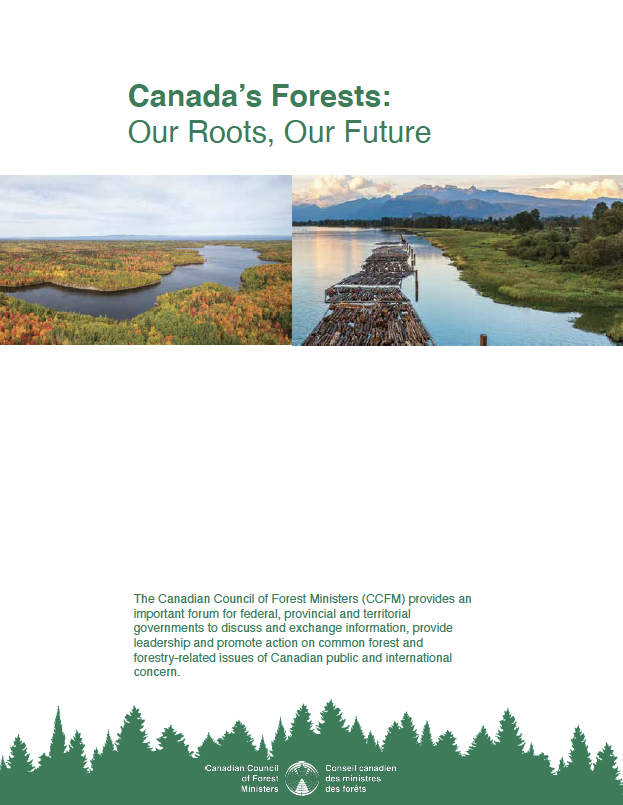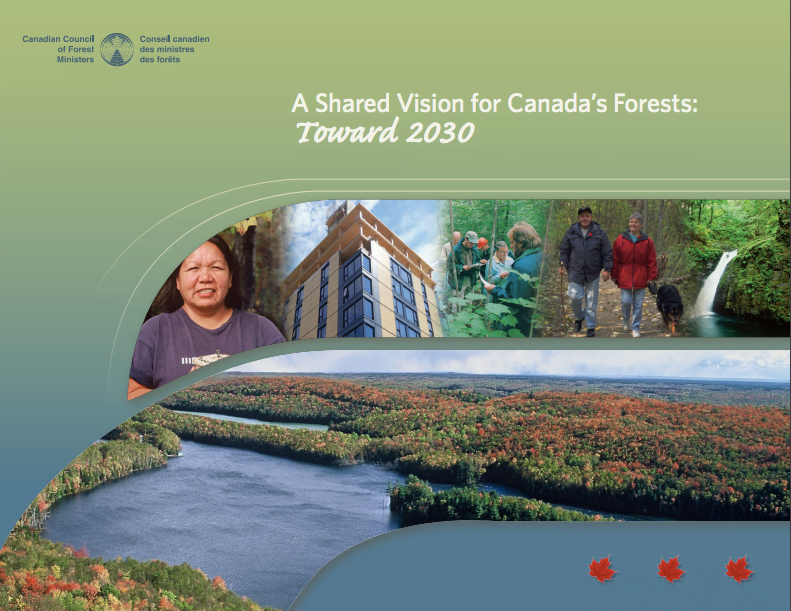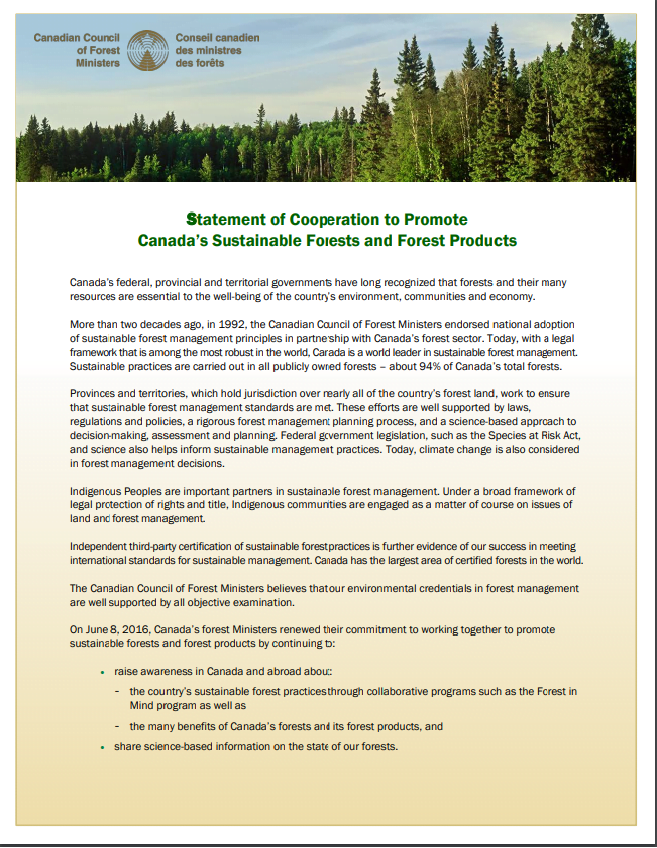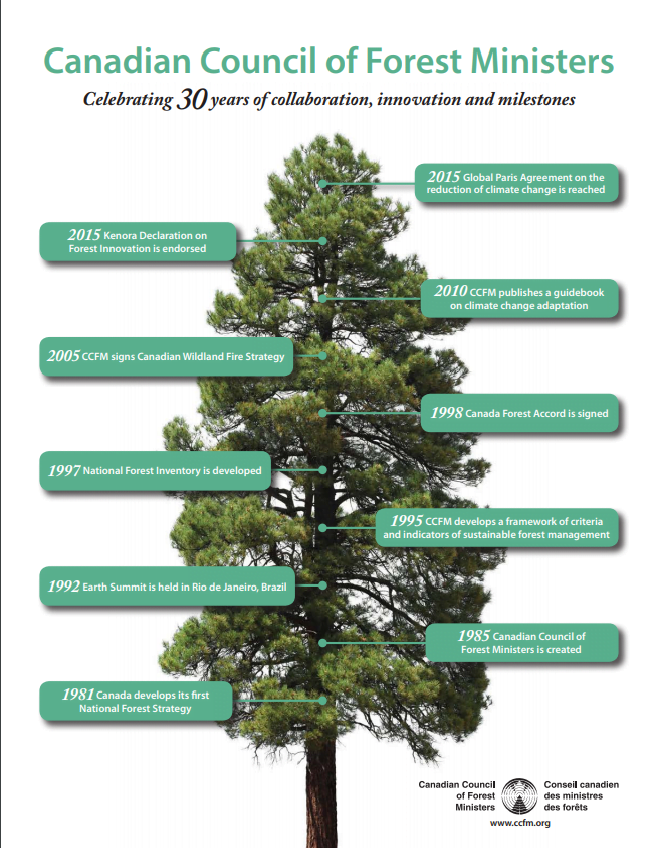Annual Meeting of the Canadian Council of Forest Ministers
CANADIAN COUNCIL OF FOREST MINISTERS ADVANCE MARKET ACCESS AND FOREST STEWARDSHIP
St. John’s, Newfoundland and Labrador, June 17, 2025 –
Federal, provincial and territorial (FPT) forest ministers and representatives met in St. John’s, Newfoundland and Labrador today to discuss shared priorities, challenges, and emerging opportunities for Canada’s forest sector. The forum was hosted by current Chair of the Canadian Council of Forest Ministers (CCFM), the Honourable Lisa Dempster, Minister of Fisheries, Forestry and Agriculture, Minister of Labrador Affairs for Newfoundland and Labrador, who kicked off the event with acknowledgement of the CCFM’s 40th anniversary. She noted the CCFM’s remarkable history of cooperative efforts that have collectively strengthened the country’s forest sector.
Ministers discussed the wildfires occurring across Canada and expressed deep concern for impacted families, local and Indigenous communities and those who work in the forest industry. They extended their sincere appreciation to the fire fighters and first responders who are tirelessly serving Canadians, citing numerous instances of inter-provincial and international support. Strengthening Canada’s wildfire preparedness and response—from building frontline response capacity to advancing science and forecasting—is crucial to the safety, health and economic well-being of Canadians. Priority discussions included review of forecasting for the 2025 wildfire season, an update on implementation of the Canadian Wildland Fire Prevention and Mitigation Strategy[1] to support preparation and response activities, and discussion of opportunities to advance measures that improve the long-term resilience of our communities and infrastructure, including increasing adoption of Fire Smart principles and practices.
Ministers reaffirmed their commitment to enhancing forest sector competitiveness, including the positive environmental reputation of sustainable forest management and discussed challenges posed by global trade dynamics, the long-standing Softwood Lumber dispute and non-tariff barriers. Ministers noted the importance of strengthening the sector’s resilience and the important role that Canadian wood products – including lumber and mass timber – will play in building affordable housing.
Federal, provincial and territorial ministers also strongly condemned the U.S. duties on Softwood Lumber which are set to increase later this year, and expressed their shared determination to mitigate the resulting economic impacts to Canadian forest workers, families, and businesses. The group agreed to continue their outreach to American officials at federal, state, and local levels to raise awareness about the negative impacts of tariffs on both sides of the border – particularly to good, well-paying jobs – and the benefits of preserving our mutually beneficial partnership. It was noted that bilateral trade in forest products is critically important to the stability of both economies, and that Canada continues to be a reliable supplier offering world-leading sustainability standards.
As the meeting’s final order of business, annual rotation of the Chair jurisdiction was confirmed with Minister Dempster formally passing the role to British Columbia for 2025-26.
About the CCFM
The CCFM was established in 1985 to provide a platform for federal, provincial and territorial governments to work together on common concerns relating to forests. The CCFM provides leadership
on national and international issues and sets direction for the stewardship and sustainable management of forests across Canada (www.ccfm.org).
For more information, media please contact:
Janice Goudie
Media Relations Manager
709-896-7935, 709-899-6446
JaniceGoudie@gov.nl.ca
Erin Hughes
Senior Public Affairs Officer
Government Communications and Public Engagement
Forests Communication Office
778-405-3175
Erin.Hughes@gov.bc.ca
[1] Québec intends to ensure that its exclusive jurisdiction over forest management on its territory is respected. Consequently, Québec is accountable to its population in its exclusive areas of jurisdiction and does not participate in pan-Canadian initiatives that have the effect of limiting its autonomy in forestry matters within its territory. Québec is not bound by the targets, objectives and commitments of the Canadian Wildland Fire Prevention and Mitigation Strategy.




